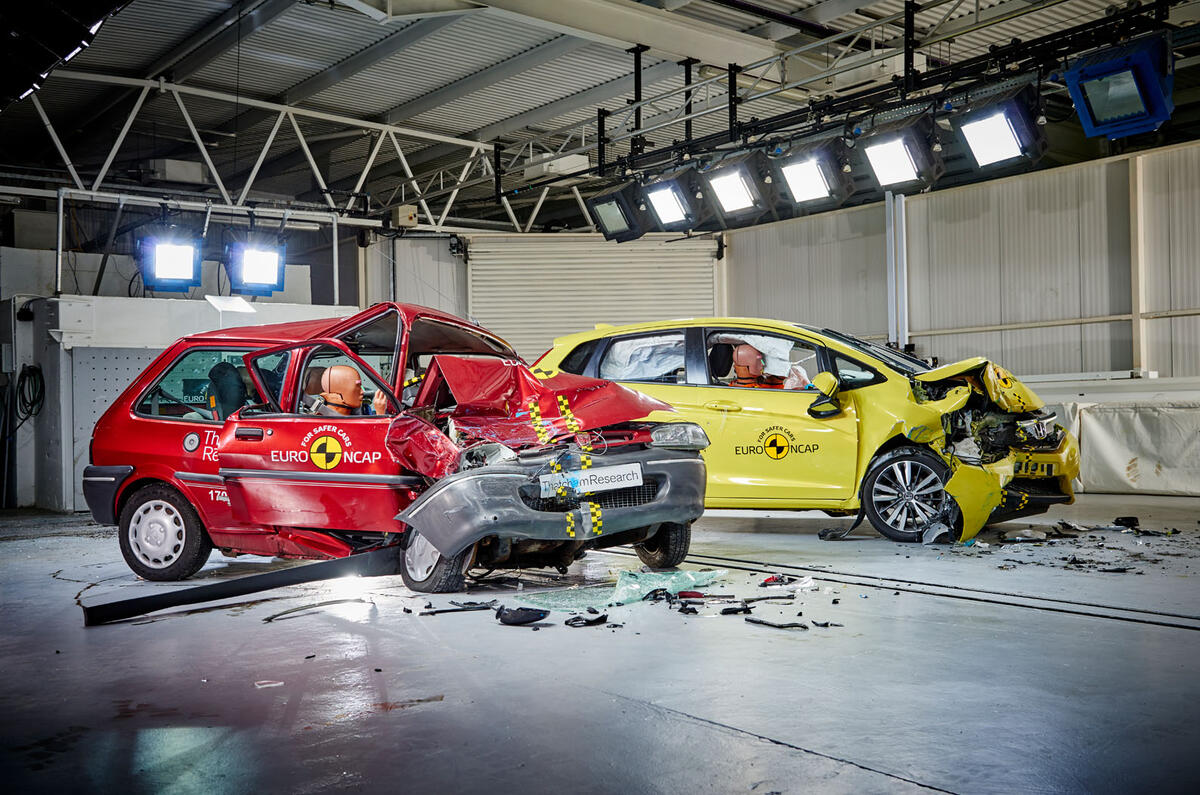Twelve new safety features are to become mandatory on cars from 2021 onwards in the EU’s latest effort to cut road deaths.
Currently, road deaths stand at 26,000 per year across the EU. The aim is to reduce this to 13,000 and halve the number of serious injuries by 2030.
Since 2010, fatalities on EU roads have reduced by 20%, but the European Commission acknowledges that there has been no significant drop since 2013. The new measures are expected to save the lives of 10,500 people and prevent an estimated 59,600 serious injuries by 2030.
The new mandatory features, listed below, cover several facets of road safety and constitute the first update of vehicles’ minimum EU safety standards since 2009. Many of these features are already offered on cars, often as options.
- Advanced emergency braking
- Alcohol interlock installation facilitation
- Drowsiness and attention detection
- Distraction recognition and prevention
- Event (accident) data recorder
- Emergency stop signal
- Full-width frontal occupant protection crash test, plus improved seatbelts
- Head impact zone enlargement for pedestrians and cyclists, plus safety glass
- Intelligent speed assistance
- Lane-keeping assist
- Pole side-impact occupant protection
- Reversing camera or detection system
Several further systems are proposed for inclusion on commercial vehicles. These are either already mandatory on cars or not relevant to them.
Automatic emergency braking (AEB) and lane-keeping assist systems are a requirement of Euro NCAP for a car to receive a five-star safety rating. This rule was introduced in 2018 – a year later than planned, following backlash from areas of the industry claiming that this was too difficult to implement. It’s not yet against EU law to sell a car without the systems fitted, though, despite the insurance industry’s acknowledgement that the system reduces rear-end accidents.
One of the more controversial systems planned for introduction is intelligent speed assistance, which can control the speed of the car by adhering to the speed limits where possible. The system can be turned off temporarily and is widely available on a variety of cars already, although critics highlight that it's the first step towards total governance of a car’s speed, plus the possible insurance ramifications of turning the system off temporarily once the system is a legal requirement.
Alcohol interlock installation facilitation is a more radical feature. It will stop the driver from using the car if alcohol is detected in their system. Despite some EU states having breathalyser-carrying laws and breathalyser immobilisation technology available to buy, this technology has not yet been written into law.





Join the debate
Add your comment
Rear Airbags
My question is why isn’t rear airbags not mandated by law when there are doors to the back.
Always horrified when I see that as an optional extra when something that important should be standard.
the rest of it for the most part (except that speed limit system) I do not mind overall
But still no small overlap crash test
I still don't understand why EuroNCAP will not implement the small overlap crash test that the Americans do and has had such an 'impact' over there. We really have no idea how most European cars would perform in this situation, and that's bad. Worse still is the likelihood that European versions of cars that do well in the US small overlap test don't have the modifications to structure and airbags necessary to pass the test when they're sold here. Perhaps we need the equivalent of the US's IIHS. Or some biting automotive journalism...
driver behaviour is key to reducing accidents
I believe that one reason that accident rates are not falling as fast as they can is that there is no longer an effective Police presence on the roads. The standard of driving is abysmal and apart from speed cameras there is there is little enforcement of the law except if there is a serious or fatal accident
valspar wrote:
Totally agree, more police warnings on bad driving techniques with more police presence may prevent those drivers that blat around with complete disregard for others from doing so, also doesn't making cars safer and safer give people a false sense of security? They feel immune to danger in their tall bulky suv's.
A lot of the proposals are available now if not mandatory and the extra crash testing and pedestrian protection is no bad thing however with regards safety, I would rather ncap testing and scores were based soley on the crash tests and not based on kit available and maybe with this kit being mandatory its comparison in cars will be irrelevant as they'll all have the same.